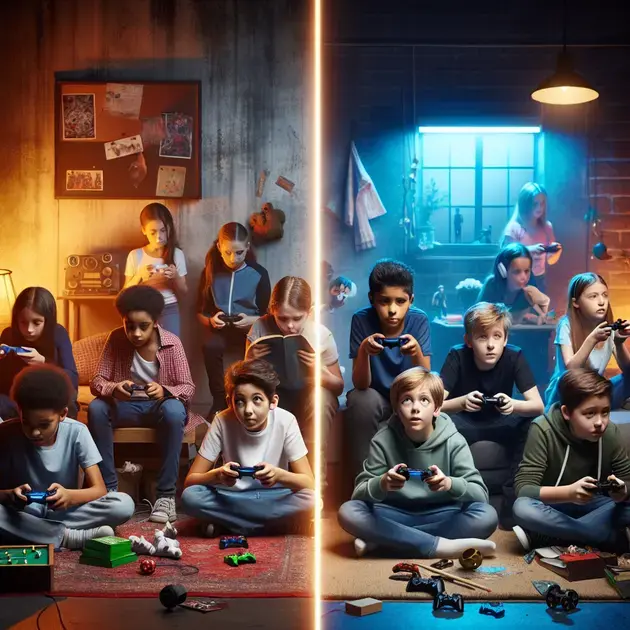Title: The Relationship Between Early Exposure to Video Games and Problematic Gaming
Introduction:
In the digital era, video games have become an integral part of many individuals’ lives, providing entertainment
and even educational benefits. However, concerns have been raised regarding the possible negative consequences of
excessive gaming, particularly in children. This article explores the relationship between starting to play video
games at an early school age and the potential development of problematic gaming behaviors, comparing it to those
who begin playing a few years later.
Early Exposure to Video Games:
With the availability and accessibility of video games, it is no surprise that many children are being exposed to
them at an early age. Some youngsters may start playing video games as early as preschool or kindergarten,
attracted by the vibrant visuals, interactive nature, and peer influence. This exposure can lead to a long-lasting
interest in video games, and potentially, a higher likelihood of developing problematic gaming behaviors.
Problematic Gaming and its Impact:
Problematic gaming, also referred to as video game addiction or gaming disorder, is a condition characterized by excessive
and compulsive engagement in video games, leading to negative consequences in various aspects of an individual’s
life. These consequences may include academic decline, impaired social relationships, reduced physical activity, and
a neglect of other important responsibilities.
The Impact of Starting Early:
Research indicates that individuals who started playing video games at an early school age are more susceptible to
developing problematic gaming behaviors compared to those who begin a few years later. Starting gaming at a young
age can create a routine and familiarity around video games, making it harder to establish a healthy balance between
gaming and other activities. Additionally, young children may have a limited understanding of self-regulation and may
struggle to control their gaming time effectively.
Factors Contributing to the Development of Problematic Gaming:
Numerous factors can contribute to the development of problematic gaming, irrespective of the age of initial exposure.
These factors include personal characteristics, such as impulsivity, low self-esteem, and a need for escapism, as well
as environmental influences like peer pressure and lack of parental guidance or monitoring.
Conclusion:
While video games can undoubtedly offer entertainment and educational benefits, it is essential to consider the
potential risks associated with excessive gaming, especially when it becomes problematic. Individuals who start
playing video games at an early school age may be more prone to developing problematic gaming behaviors due to
factors such as routine formation, a lack of self-regulation skills, and prolonged exposure. Recognizing the signs
of problematic gaming and promoting responsible gaming habits from an early age are crucial for maintaining a
healthy balance between gaming and other aspects of life. Individuals who began playing video games during their early school years exhibited a faster development of problematic gaming when compared to those who started engaging in this activity a few years later.
